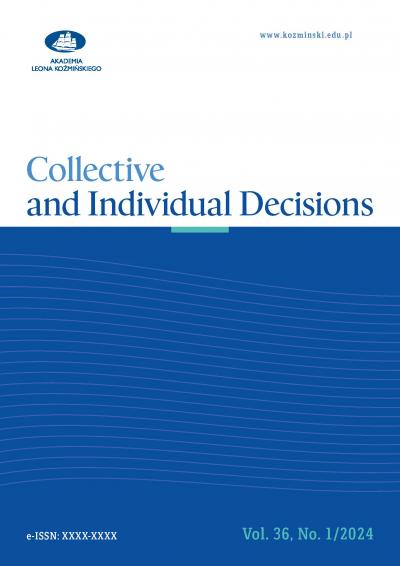A model of strategic preemption: why do Post-Communists hurt themselves?
Marek Kaminski
University of California
Monika Nalepa
University of Chicago
6/2014 (21) Decyzje
DOI 10.7206/DEC.1733-0092.21








